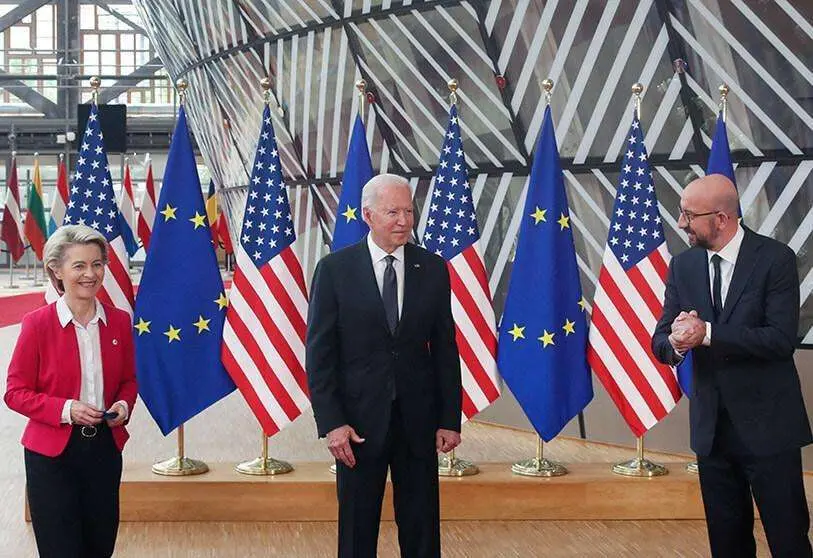A partial Putin victory, the EU-US rift

In early January, the Inflation Reduction Act (IRA) will come into force in the United States, the flagship initiative of President Joe Biden's administration to contain the unbridled rise in prices and the consequent general impoverishment of the country's middle and lower classes. Such a laudable American domestic objective has, however, a foreseeable brutal cost in Europe, which is preparing to counter what it considers not only disloyalty on the part of its main ally but also an obvious breach of the rules of the World Trade Organisation (WTO).
In essence, the American bill proposes to subsidise industries that develop projects related to renewable energies, including, of course, automobile manufacturers, to the tune of nearly 400 billion dollars. A thorough analysis of the US law by EU experts leads to a devastating conclusion: a return to the old protectionist practices, where the main collateral victim will be the corresponding European industry, whose products will not be able to compete on equal terms in the United States. Coming, moreover, from what is considered the EU's main partner and ally, the blow hurts all the more. The tension between the two sides of the Atlantic went up a notch last week when Internal Market Commissioner Thierry Breton decided to absent himself from the EU-US Trade and Technology Council, in a gesture that in diplomatic terms is interpreted as a real rupture. So much so that the commissioner will complain to the WTO about the new American law.
Previously, French President Emmanuel Macron had made a four-day state visit to Washington, where the Biden couple had given him the best reception and the most lavish treatment. It was indeed a visit of reconciliation, after the sudden cooling of Franco-American relations a year ago, when Paris learned from the newspapers that Australia was breaking a contract with France to buy 60 billion euros worth of submarines from France, to be purchased from the United States as part of the new AUKUS, the new strategic military alliance between Australia, the United Kingdom and the United States. But behind the pomp and circumstance, in closed-door negotiations, Macron got no more from Biden than a vague promise to "make some adjustment" to the IRA, which, by the looks of things, is not even going to be a cosmetic shave.
So brutal are the consequences for European industry of this renewed American protectionism considered in Brussels that equivalent retaliatory measures are already being drafted, which would in fact trigger an unwanted trade war between the two sides of the Atlantic. Both the European Commission and the foreign ministries are trying to play down the seriousness of the dispute, but it is clear that, if nothing is done, the blow to European industry could be devastating.
There are no official pronouncements, but there is a general clamour that in the war in Ukraine, in addition to the attacked country itself, the main loser could be the European Union, whose renunciation of buying Russian gas and oil is in exchange for buying it largely from the United States, which has thus accumulated "huge profits fallen from the sky", having become the world's largest supplier by 2022.
Europe has also passed on a large part of the increases in its defence budgets to the US arms industry, which not only manufactures at full speed the new weapons to replace those it sends to Ukraine, but also those needed by EU countries for the same reason.
This imbalance between the winners and losers in the Ukrainian war also permeates considerations of the measures to be taken between the contenders in the war: Ukraine itself and Russia. In some circles it is believed that President Vladimir Putin has already won a victory by achieving the first divisions on the Western side. The main one, of course, would be this increased tension between the EU as a whole and the United States, but also the one that is already beginning to emerge among the EU's own partners. The Baltic States, and even the Nordic countries, for example, are relying more on the defensive umbrella that the United States can provide than on the purely European strategic alternative advocated by France and Germany, even though major discrepancies have begun to appear on this axis too, which ultimately weaken the European Union as a whole.
In this environment, there is also a growing divide between those who believe that the war should be ended by effectively forcing Ukraine to accept the amputation of part of its territory and sovereignty, and those who argue that Putin should be pushed even further into a corner, and not agree to such peace negotiations until Russia itself has replaced its dictator-president.

